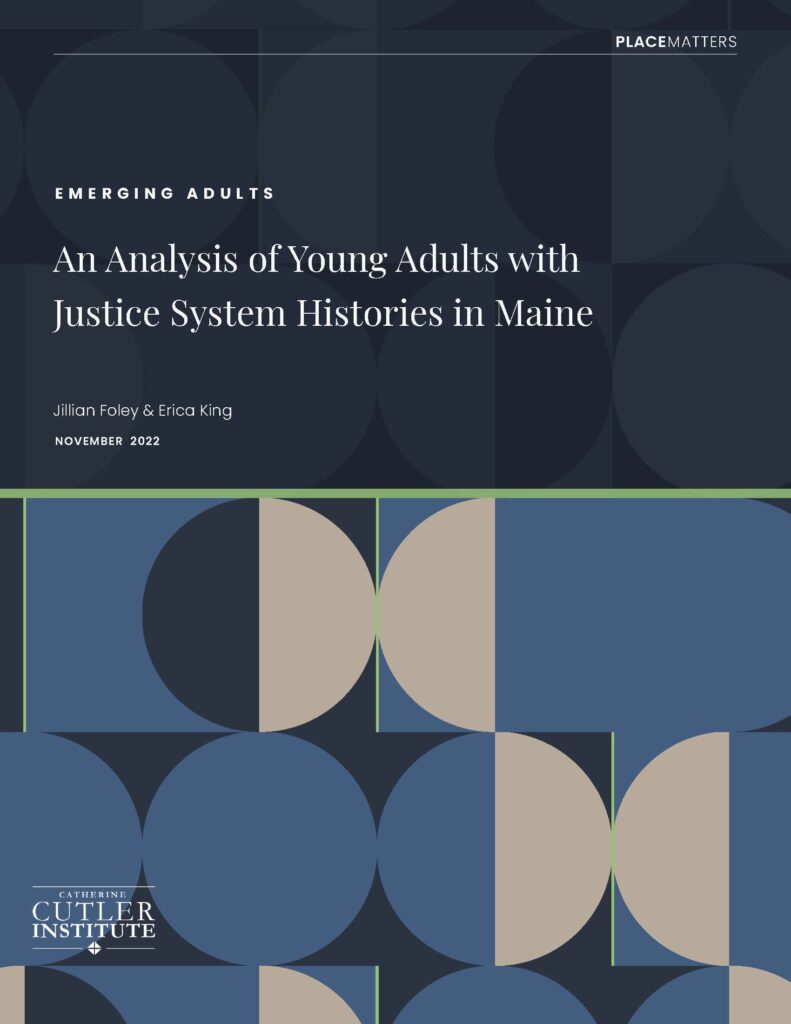News Story
CEPP’s Erica King Co-Authored New Report on Young Adults with Justice System Histories in Maine
Report finds emerging adults (18- to 24-year-olds) are overrepresented in Maine’s criminal justice system
Erica King, now a Senior Manager at CEPP, developed a recent report while at the Catherine E. Cutler Institute at the University of Southern Maine on the challenges of emerging youth, or 18- to 24-year-olds, with Jillian Foley, Policy Associate at USM.
The report “Emerging Adults- An Analysis of Young Adults with Justice System Histories in Maine” found that 1 in 10 young adults ages 18 to 24 in Maine have had some level of contact with the Maine Department of Corrections (MDOC). The report also found that while many young adults in Maine (over 12,000) had been previously referred to the juvenile justice system, most (86%) were never incarcerated. The majority had not returned to the system as adults.
“The findings in this report have been supported in previous research, and we must recognize that these disparities in Maine are unacceptable,” said co-author Erica King (MSW), advisor to the Place Matters team and Senior Manager at the Center for Effective Public Policy. “This transitional period in the life of young adults is absolutely critical for building the equitable pathways to positive social and economic opportunities that Maine’s youth deserve.”
Erica King joined CEPP in January 2023 to guide our gender justice work through the National Resource Center on Justice-Involved Women (NRCJIW). Learn more about Erica here.
Ms. King also co-authored another recent report titled “Cross Systems Collaboration to Improve Positive Youth Outcomes” with the Regional Care Team (RCT) initiative by the Maine Department of Corrections in partnership with the Place Matters team at USM and the Maine Center for Youth Policy and Law (MCYPAL). The RCT initiative aims to help sustain system-involved youth in their communities by facilitating shared accountability for their health, safety, and well-being. This report summarizes what has been learned over the first two years of the initiative4 and includes recommendations for statewide systemic changes that could improve youth, program, and population outcomes.

